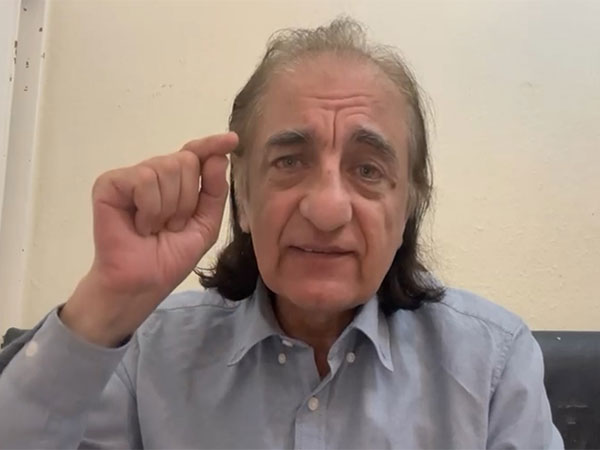Imran Khan blames PPP, PML-N govts for creating imbalance in civil-military relations
Jul 17, 2022

Islamabad [Pakistan], July 17 : Former Pakistan Prime Minister and Pakistan Tehreek-i-Insaf chief Imran Khan has blamed the previous governments for creating the imbalance in civil-military relations and asked the military to reconsider their decision to support the incumbent government.
Speaking at a seminar on freedom of expression, a day ahead of crucial by-polls in Punjab, where his party is contesting 20 Punjab Assembly seats across the province, Imran Khan said that the previous governments of the Pakistan Peoples Party (PPP) and the Pakistan Muslim League (Nawaz) (PML-N) provided space to the establishments to save themselves from corruption cases, which created a gap between the civilian leadership and military, the Dawn reported.
"Because of this imbalance, a situation has developed that now the establishment isn't realising the consequences of the actions it is committing," he said while referring to a crackdown against his party following his ouster as a result of the no-confidence motion.
"We cannot afford a weak army... we have to protect it. If the distance between the army and the public keeps increasing, which it is, then it will eventually harm the army and Pakistan," he added.
"Reinforcing a "failed" government would further widen the gap between the people and the establishment. The establishment should differentiate between constructive and damaging criticism," he added, referring to the current government of Shehbaz Sharif.
Pakistan is at a critical juncture and it was very important that the "right decisions" were made today, he said, adding that the establishments should reconsider their decision to support the incumbent government.
Speaking of the forced disappearance of journalists, activists as well as students under his regime, Imran said that he was the most criticized PM but he was never afraid of the media and that his government had nothing to do with whisking people away or restrictions on media.
"I never tried to bribe journalists or take action against them, but constructive criticism" was necessary," Imran said.
"The trend of disappearing people started during the War on Terror. I was the first person to protest against this practice in 2003 after Aafia Siddiqui went missing. I did not know the point of view of the army till I came into power," Khan said, adding that he used to speak against these enforced disappearances because "there is nothing more painful" than seeing the relatives of missing persons coming to ask about their loved ones.
"We came in the government and got to know that oftentimes people were picked up on the pretext of national security."
PTI chief said that he spoke to Army Chief Gen Qamar Javed Bajwa when Gen Faiz Hamid was the chief of the ISI, which resulted in the release of many forcibly disappeared people, the Dawn reported.
"The army said the problem was regarding the judiciary," he said, adding that the explanation provided to him was that it was difficult to prosecute a terrorist in court due to a lack of evidence or witnesses.
He claimed that an agreement was reached and his government was working on a bill that would have, at least, kept the families of the missing persons in the loop, the Dawn reported.
Imran Khan also distanced his government from the abduction of journalists during the rule of the PTI government. "Shireen Mazari knows, it came up in cabinet three or four times that some journalist was picked up; no journalist was picked up on my instructions, the problem was something else," he said.
The issue of forced disappearance in Pakistan originated during the Musharraf era (1999 to 2008), but the practice continued during subsequent governments.
Human rights activists allege that the law enforcement agencies in Pakistan are responsible for the cases of forced disappearance in Pakistan.
Enforced disappearances are used as a tool by Pakistani authorities to terrorize people who question the all-powerful army establishment of the country, or seek individual or social rights. Cases of enforced disappearances have been majorly recorded in the Balochistan and the Khyber-Pakhtunkhwa provinces of the country which host active separatist movements.



















